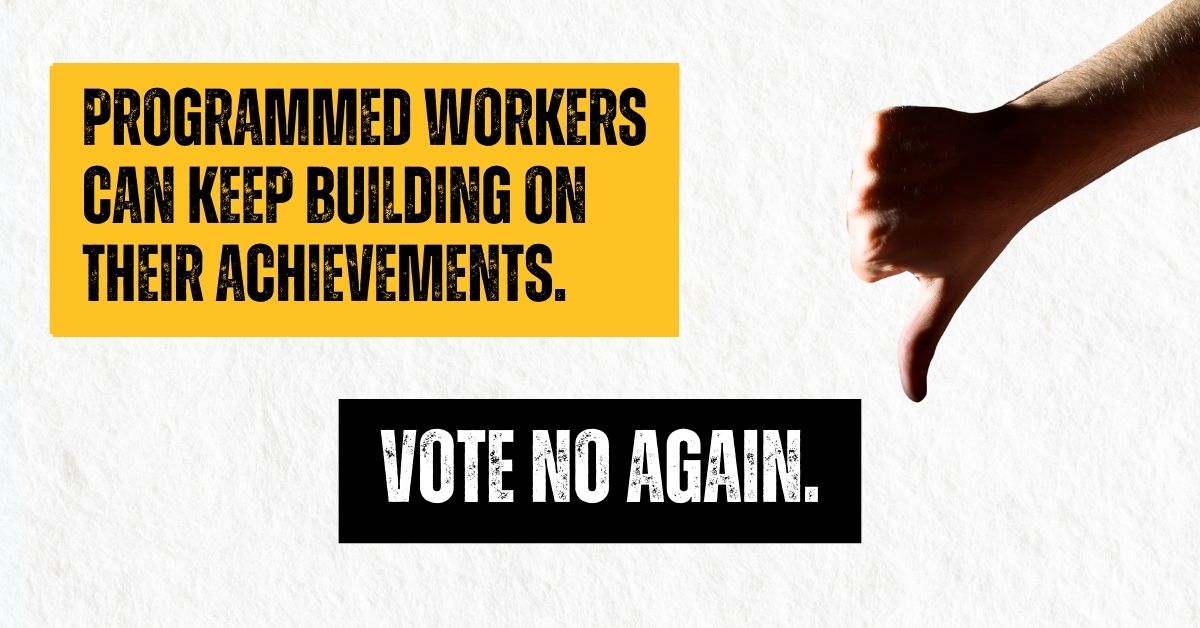November 7, 2023
Workers at the Hunter mining industry’s largest labour hire provider Programmed have secured a 10% pay rise and improved conditions by voting ‘no’ to a substandard Enterprise Agreement and forcing the company come back to the bargaining table.
Programmed workers are among many labour hire miners across the coal industry who have had enough and are getting organised through the Union to get a better deal.
After workers resoundingly rejected their substandard EA in September, Programmed Skilled Workforce has improved its position in several key areas. These include a 10% raise this year followed by 4% in 2024, as well as accident pay and long service leave paid as at work.
This is welcome because Programmed mineworkers are currently among the lowest paid in the District, earning about $35,000 less per year than their directly employed counterparts.
However, the company is still resisting providing industry standard conditions in some areas. Programmed has yet to agree to sick leave being paid as at work, fair calculation of flat-rate payouts or Northern District average bonus.
Therefore, the MEU bargaining team is once again calling on Programmed workers to vote no and seek further improvements. Even though good progress has been made, a second strong no vote will reiterate to the company just how serious workers are about getting a fair go. We believe more progress can be made.
Programmed has lucrative contracts at many of the Northern Districts biggest coal mines, including Hunter Valley Operations and Mt Arthur. These are huge operations which have turned over multibillion-dollar profits for their owners in the past twelve months. The multinational companies that own these operations including BHP, Yancoal and Glencore can easily afford to meet these standards in their contracts with labour hire companies.
The Productivity Commission recently identified mining as one of only two industries where wage increases have ‘decoupled’ from productivity – meaning mining company profits are far outstripping wage increases.
Overall, mining has much higher operating margins than any other Australian industry, meaning the cost of production including labour, equipment and other costs is very low compared to the profits they generate.
In other words, workers haven’t been getting a fair share of the resource prices boom – especially labour hire workers.
MEU members at Programmed are just some of the labour hire mineworkers standing up for better pay and conditions. In July, workers at Operations Services (BHP’s internal labour hire provider) in Queensland’s Bowen Basin took a single four-hour work stoppage. This action forced the company to concede to conditions they have resisted for five years.
In September, workers at CH4 Drilling in the Illawarra secured one of the best agreements in the region. Through doubling union density and taking decisive industrial action, workers at CH4 brought the company back to the table with an acceptable agreement – including a pay rise twice the size of their original ‘best’ offer.
Labour hire workers do face job insecurity, but they have also become indispensable to the running of mines. Labour hire workers around the country are showing how they can get organised through the union and exercise their bargaining power to get a better deal.

